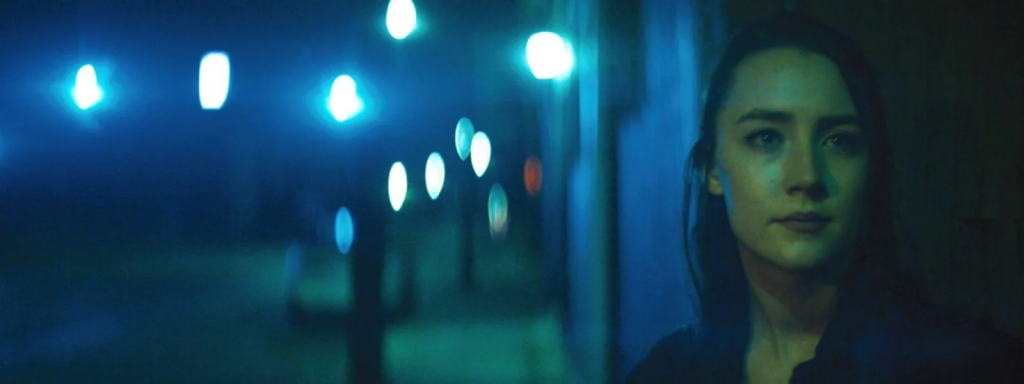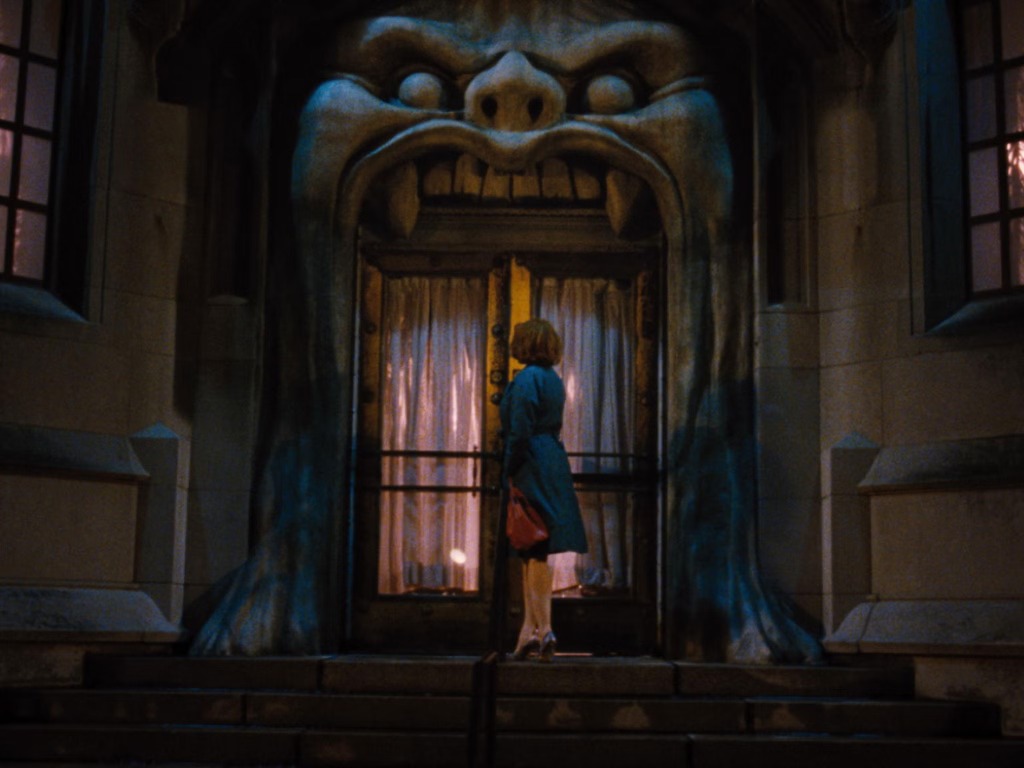Synopsis-In Lost River, a deserted city, Billy finds it hard to retain her ancestral home as she defaults on a loan. To save his family from bankruptcy, Bones, her son, tries to unearth the town’s origins.
Director- Ryan Gosling
Starring- Christina Hendricks, Saoirse Ronan, Eva Mendes
Released- 2014
Ryan Gosling’s directorial debut “Lost River”, is a film that attempts to blend fantasy, drama, and neo-noir elements into a visually striking narrative. Unfortunately, this ambitious undertaking falls short of delivering a coherent and engaging cinematic experience by seemingly forgetting to introduce a cohesive plot.
One of the film’s redeeming qualities is its visually arresting cinematography. The dark and dreamlike atmosphere created by Benoît Debie’s cinematography is undeniably captivating. The neon-soaked streets and decaying urban landscapes provide a unique aesthetic that is both haunting and beautiful. Gosling’s directing showcases his keen eye for striking visuals, creating a visually immersive world.

However, the film’s aesthetic prowess cannot compensate for its lacklustre narrative. “Lost River” suffers from a disjointed and confusing plot that struggles to find its footing. The story follows a single mother, played by Christina Hendricks, who becomes entangled in the dark and mysterious underworld of a decaying city. The narrative veers into surreal and fantastical territory, making it challenging for audiences to connect with the characters or fully understand the world they inhabit.
The characters themselves lack depth and development, making it difficult for viewers to invest emotionally in their journeys. Despite the efforts of a talented cast, including Saoirse Ronan and Iain De Caestecker, the poorly written characters fail to elicit empathy or interest. Their motivations remain unclear, and the dialogue often feels forced and artificial.

The film’s attempts to explore socio-economic issues and the consequences of urban decay are commendable but are ultimately overshadowed by the film’s artistic pretensions. The social commentary feels underdeveloped, and the symbolism often comes across as heavy-handed and forced. As a result, “Lost River” struggles to deliver a meaningful message or engage with its intended themes in a substantive way.
The pacing of the film also contributes to its shortcomings. Scenes linger without purpose, and the overall rhythm feels uneven. This lack of pacing makes the film feel longer than its runtime, testing the patience of the audience. Moments of tension or emotional impact are diluted by a meandering narrative that fails to build and maintain momentum.

In addition to its narrative and pacing issues, “Lost River” has faced criticism for its perceived lack of originality. The film borrows heavily from other works, including David Lynch’s “Blue Velvet” and Nicolas Winding Refn’s “Drive.” While homage can be a valid artistic choice, “Lost River” often feels like a collection of borrowed elements rather than a cohesive and original creation.
In conclusion, “Lost River” is a visually striking but narratively flawed film that struggles to make a meaningful impact. While Gosling’s directorial debut showcases his visual prowess, it falls short in terms of storytelling, character development, and originality. The film’s ambition is evident, but its execution leaves much to be desired. Despite moments of visual brilliance, “Lost River” ultimately feels like a meandering and disjointed journey that fails to resonate with its audience.

Leave a comment